Advancing Global Citizenship Education and Sustainable Development: A Transformative Learning Initiative
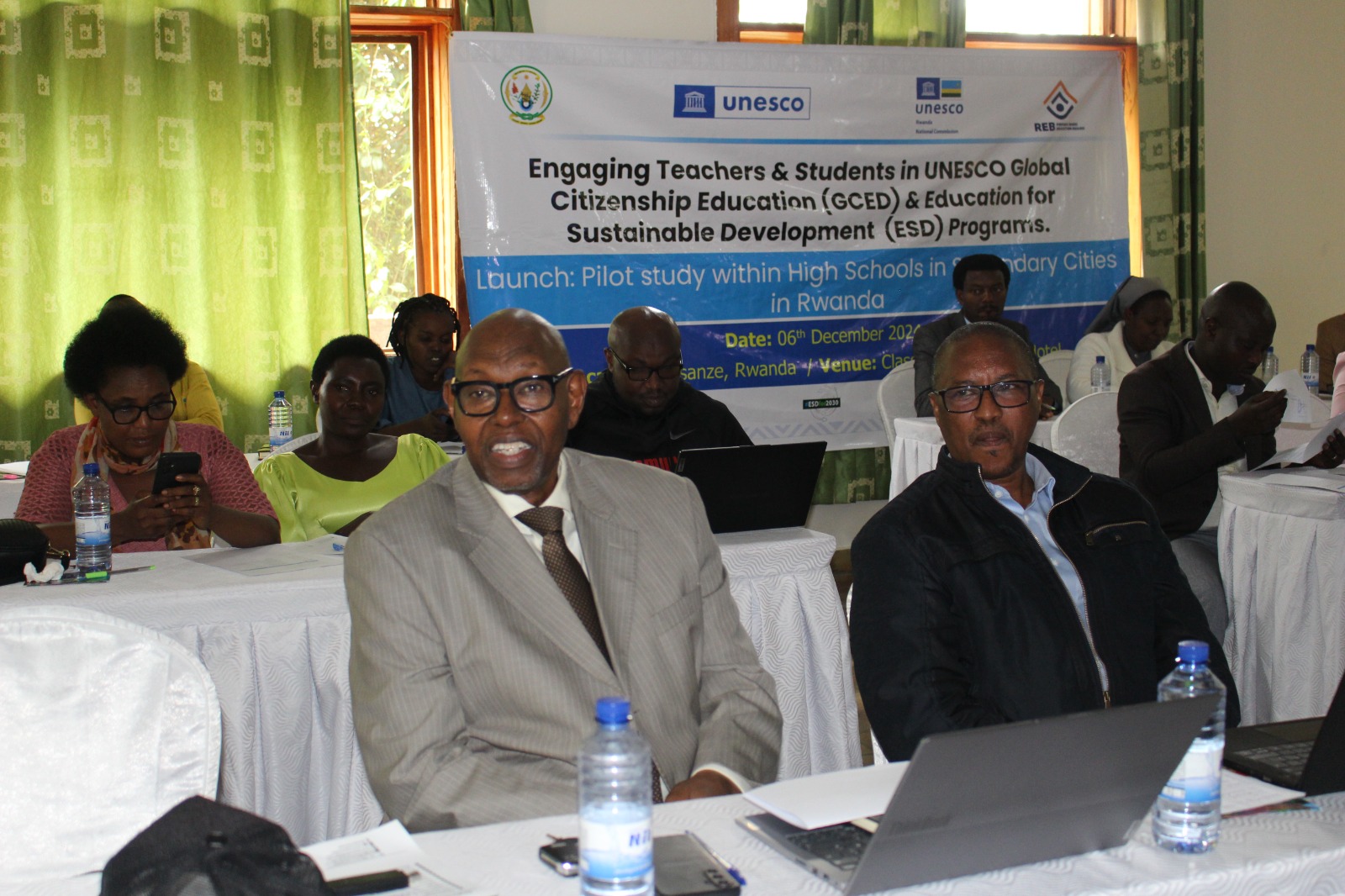
In a significant stride toward fostering a more sustainable and inclusive future, an innovative educational initiative was launched to introduce both teachers and students to the core principles of Global Citizenship Education (GCED) and Education for Sustainable Development (ESD). These frameworks are integral components of Sustainable Development Goal 4, particularly target 4.7, which focuses on equipping learners with the knowledge and skills necessary for sustainable development. The launch event took place on Friday, December 6, 2024, at the Classic Resort Lodge in the scenic Musanze District.
The initiative aimed not only to outline its objectives but also to establish a roadmap for implementation. More importantly, it emphasized the critical role of education in addressing global challenges and promoting a sustainable world. By highlighting the significance of GCED and ESD, the initiative aspires to empower individuals with the tools and understanding needed to positively engage with an evolving global landscape. This initiative promises to cultivate a community of informed and engaged citizens dedicated to shaping a brighter future for all.
Dr. Mbarushimana Nelson, the Director General of the Rwanda Education Board (REB) stated, “This program represents an exciting step forward in our mission to transform education in Rwanda. We are equipping learners with the skills and knowledge necessary to thrive in a rapidly changing, interconnected world. Our vision at REB is to promote quality education across various schools, continuously innovating to create an education system that not only imparts knowledge but also shapes learners into responsible citizens committed to sustainable development.”
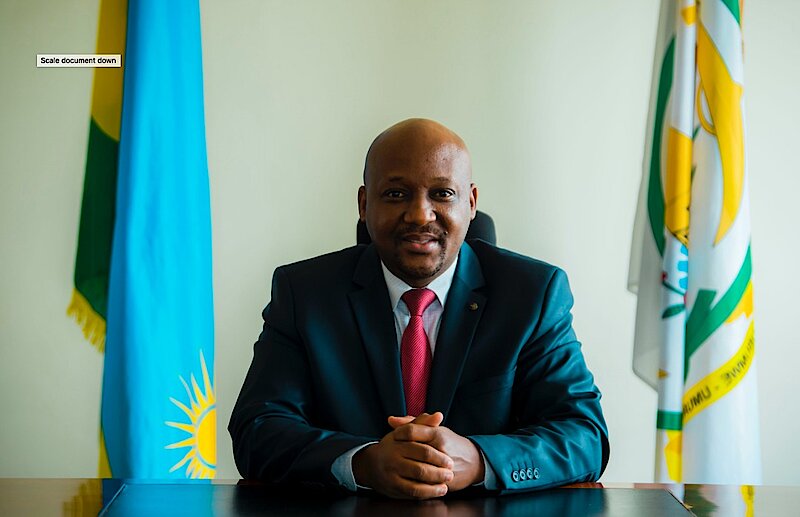
He further noted the pressing challenges of our time, including climate change and pandemics, asserting that education must extend beyond academic excellence to prepare learners for these complexities. “Through GCED, we aim to empower students to see themselves as part of a global community, appreciating diversity, promoting peace, and collaboratively addressing societal challenges. Likewise, ESD ensures that our learners are equipped to make informed decisions and take action to safeguard the environment, foster sustainability, and protect future generations.”
Although the program currently involves ten schools in secondary cities—Rubavu, Musanze, Huye, Nyagatare, and Rusizi—REB is committed to expanding this initiative to reach all schools in Rwanda. Every learner, regardless of their location, deserves the opportunity to benefit from the transformative principles of Global Citizenship and Sustainable Development. This rollout will require collaboration and support from all stakeholders; “together, we can achieve our goals. The program aligns perfectly with Rwanda’s National Strategy for Transformation and Vision 2050, where education is central to our development ambitions. By embedding GCED and ESD in our schools, we are investing in the leaders, innovators, and changemakers of tomorrow. We want our learners to:
1. Think critically about complex challenges.
2. Collaborate with others to solve problems.
3. Respect diversity and promote peace and justice.
4. Take responsibility for the environment and sustainable development.”
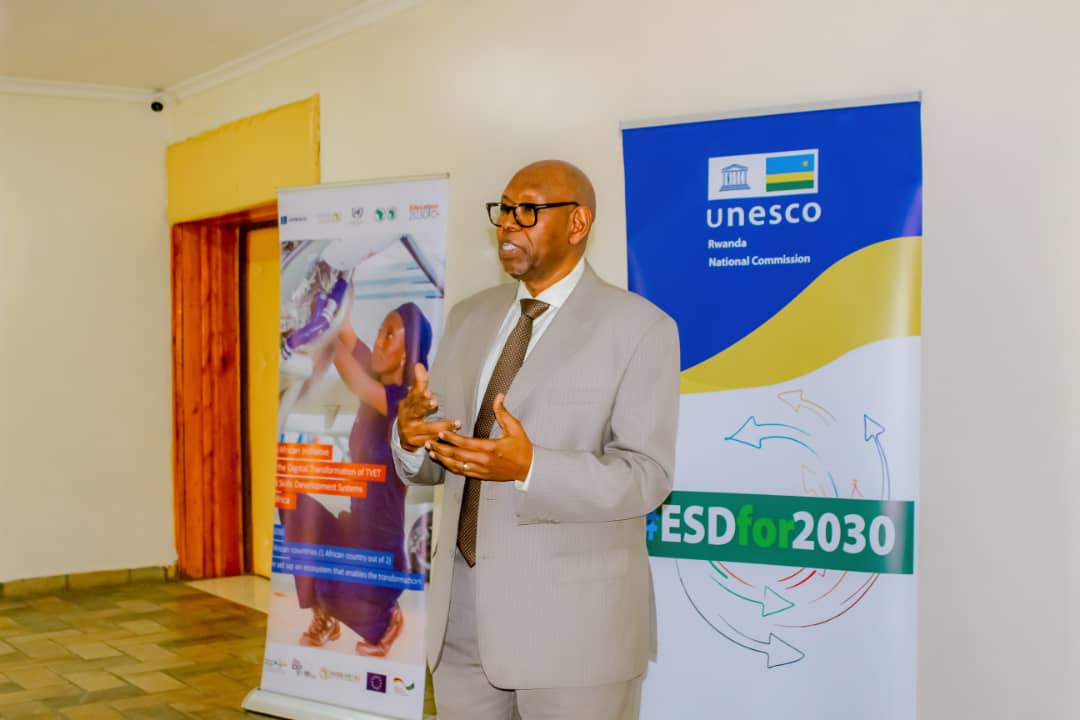
Jeremie Habumugisha, one of the project implementers, outlined the specific objectives: “We aim to introduce secondary students and teachers to the concepts of GCED and ESD. To cultivate good global citizens who can contribute to sustainable development, we must start with students and teachers, as they are the key actors in understanding these principles.”
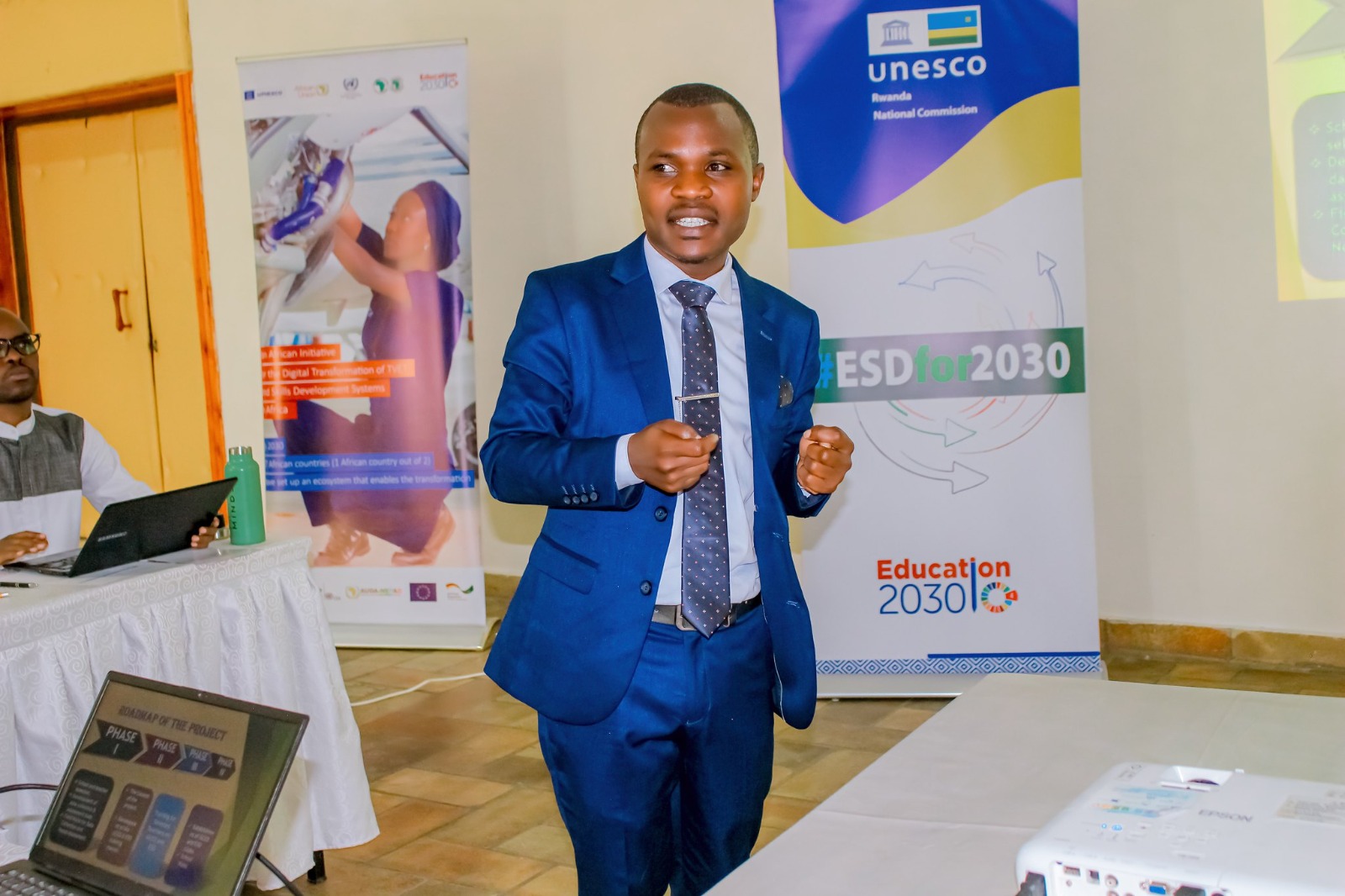
He explained that the project consists of four stages, with the first stage already completed—selecting schools in five secondary cities, with two schools chosen in each district and one teacher selected from each school, ensuring gender balance. The schools were chosen based on their connection to UNESCO and their capacity to integrate GCED and ESD into their curricula.
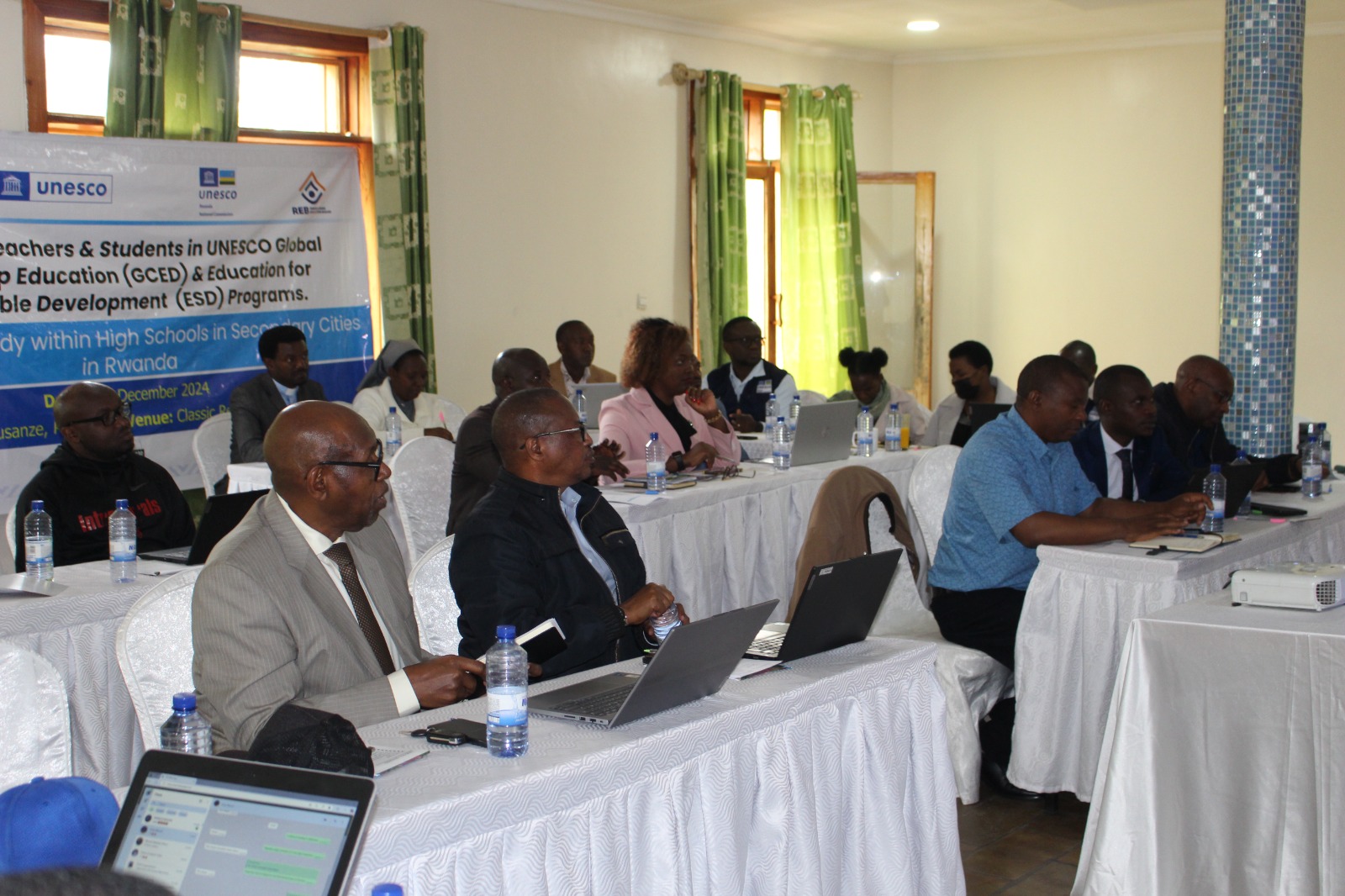
In the second phase, the project was officially launched with school principals to ensure they allocate time for teachers and students to learn these vital concepts. Following the launch, from December 9 to 12, project teams will work with Master trainers trained by Asia Pacific Centre of Education for International to develop a training manual. Training for selected teachers on ESD and GCED will occur from December 17 to 20, after which they will establish GCED and ESD clubs within their schools.
Naason Munyemana, Head Teacher of GS Gihundwe in Rusizi District, emphasized the long-term benefits of the project, stating, “I found it to be a very good program. Teaching children without focusing on the right values often leads to unsatisfactory results. This initiative helps us raise children with the necessary values to thrive in society.”
Umutoni Alice, Director of Education in Musanze District, added that this program not only provides education but also prepares students to be responsible citizens. “This program empowers teachers and equips them with the knowledge needed to nurture the desired Rwandan citizen.”
The initiative represents a pivotal moment in Rwanda’s educational landscape, promoting Global Citizenship Education and Education for Sustainable Development as essential pathways to a more sustainable and inclusive future. By fostering a culture of awareness and responsibility among learners, we can collectively address the global challenges of today and build a better tomorrow.

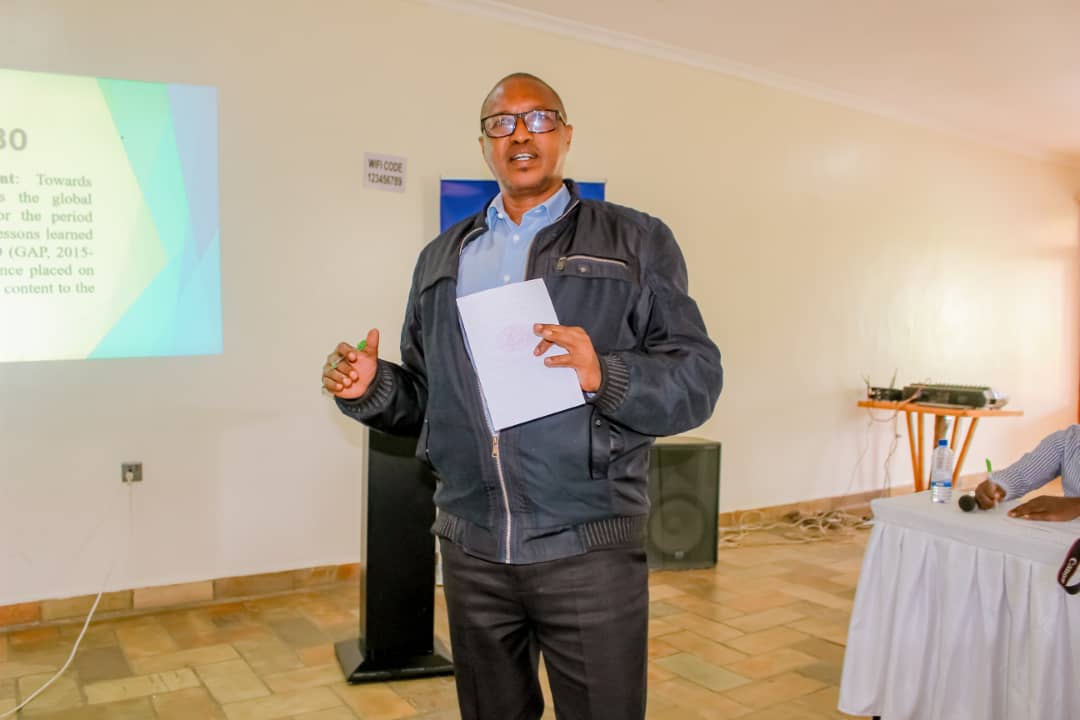
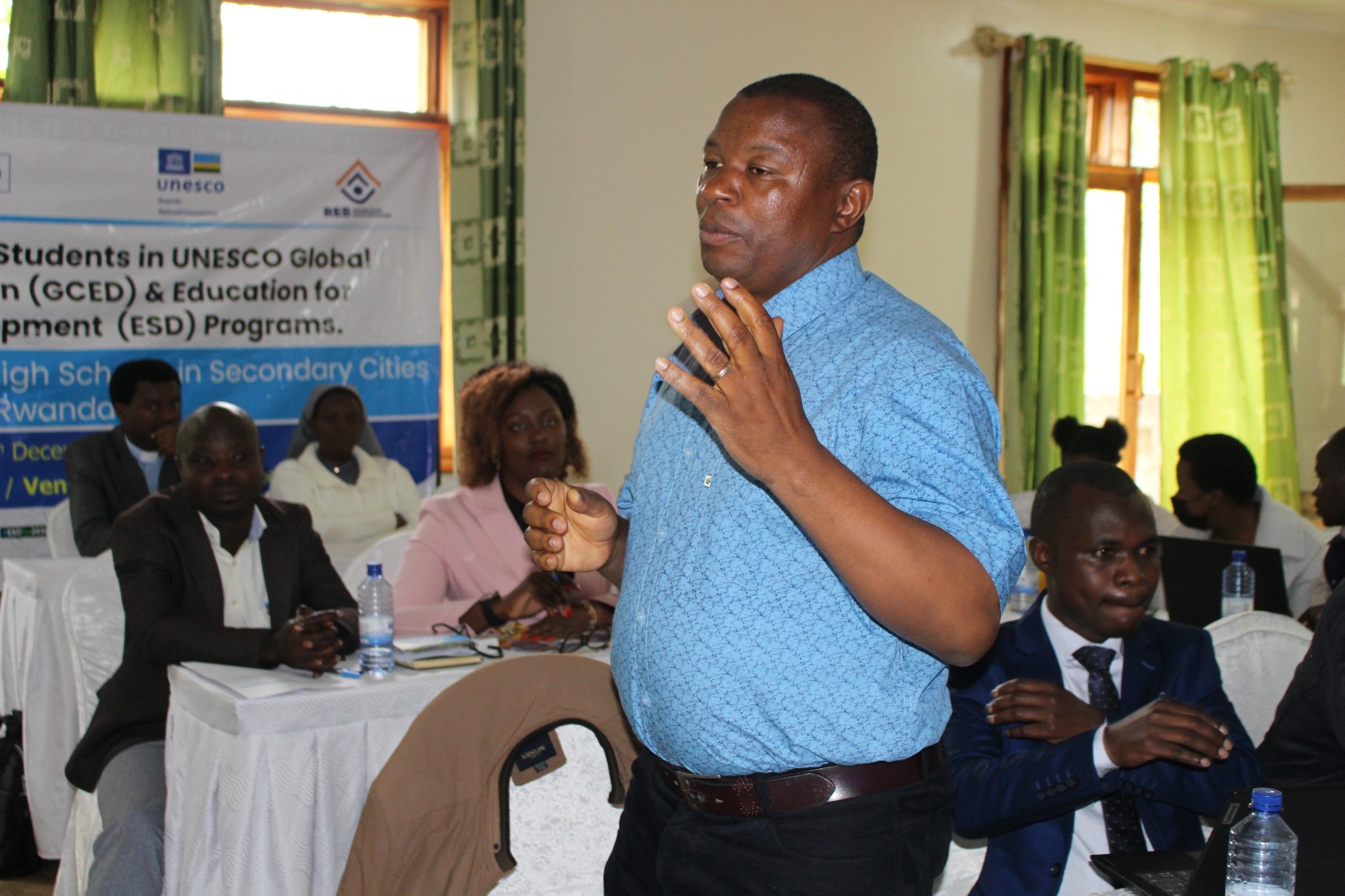
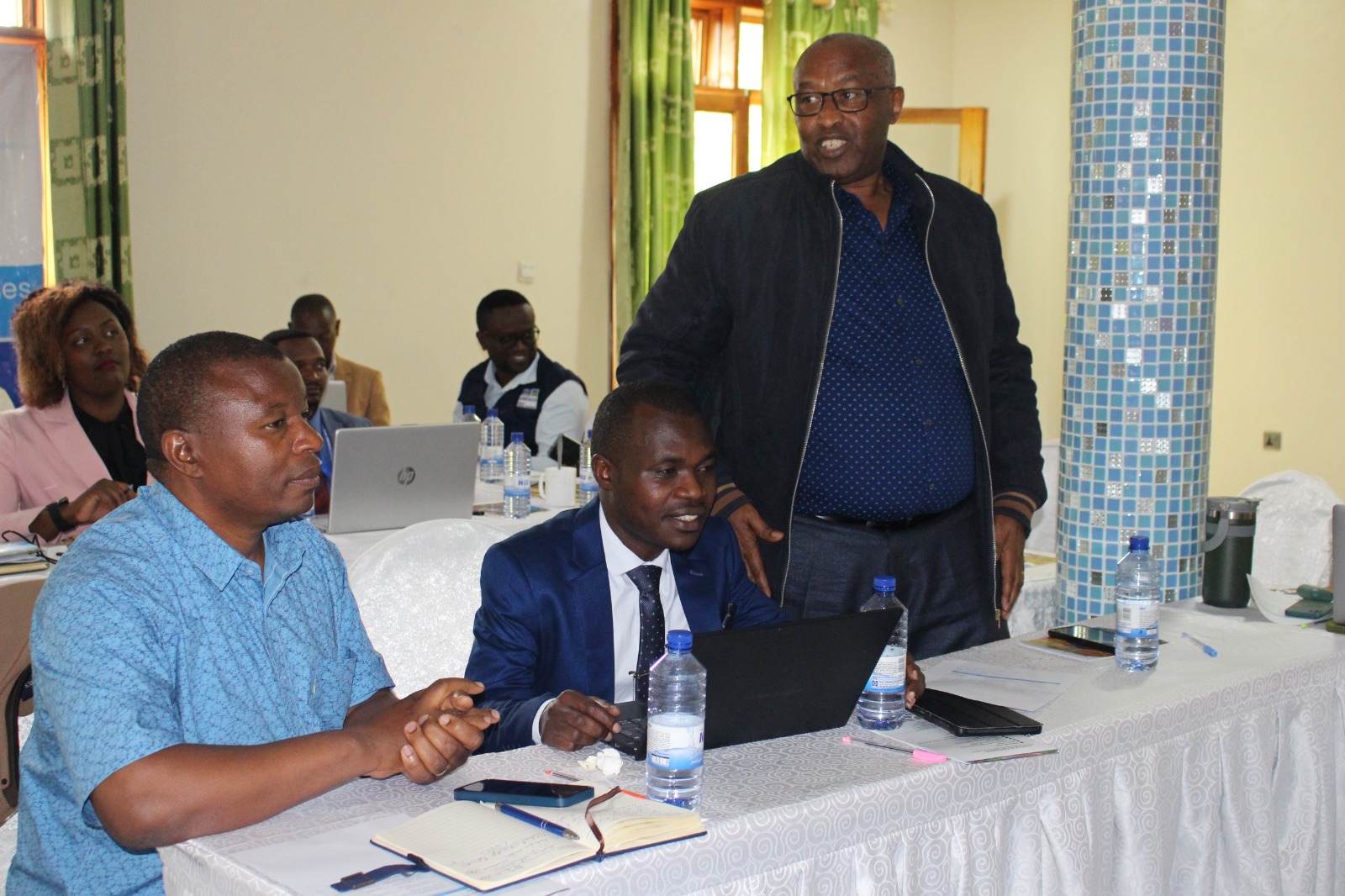
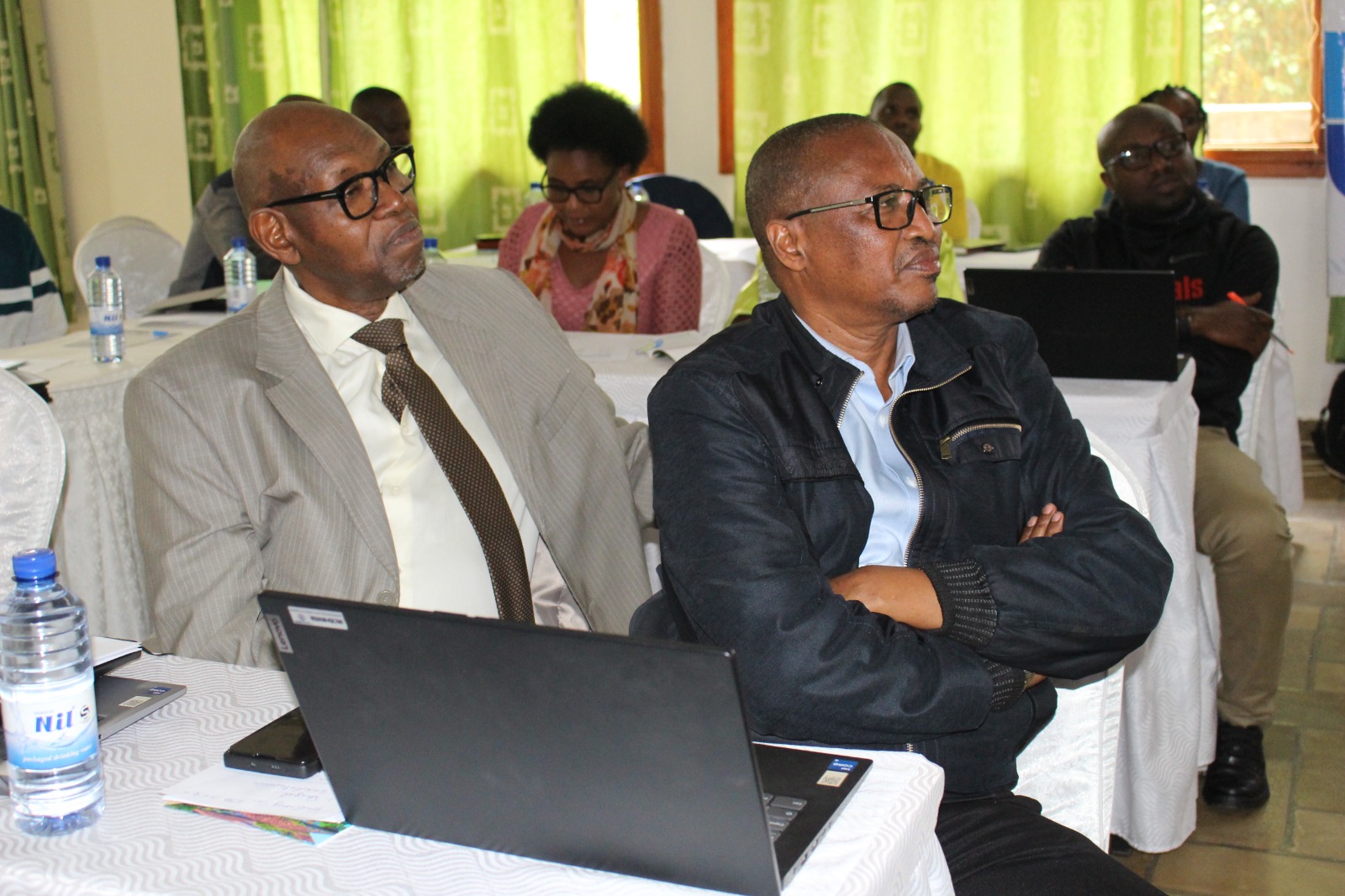

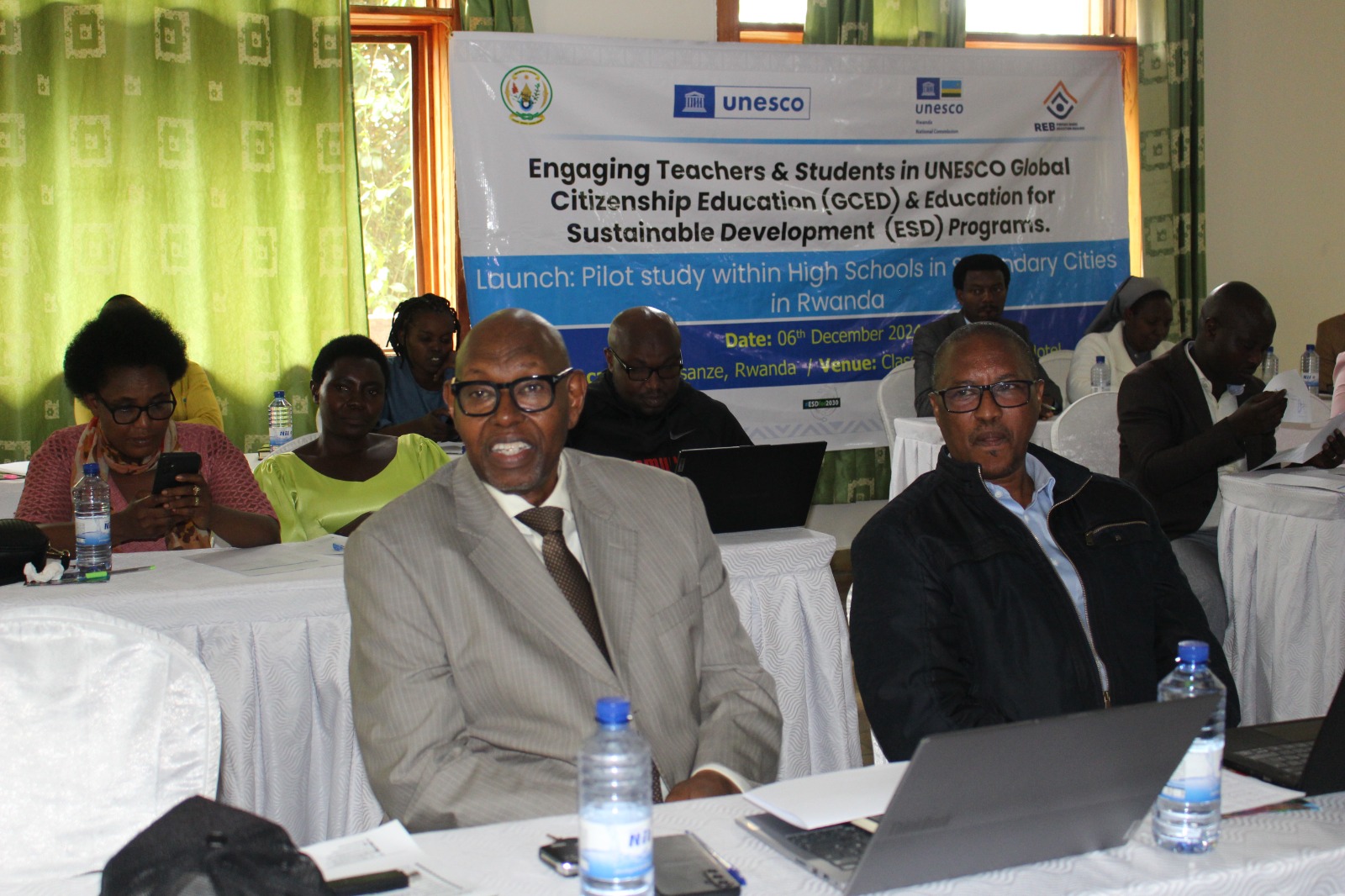
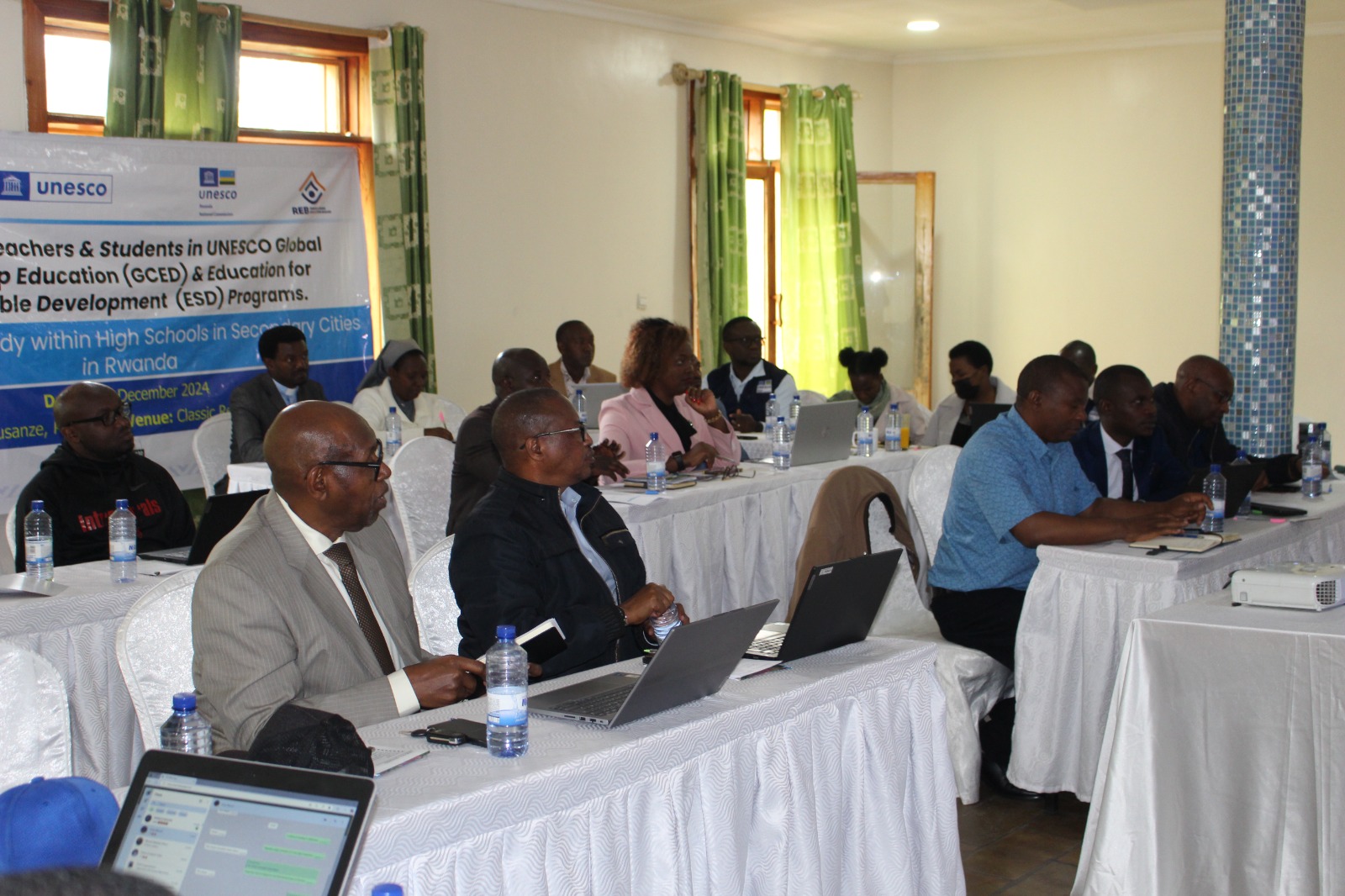
Related Articles
Global Agri & Food Safety Congress 2026: Building Resilient Food Systems in a Changing Climate
On 26–27 February 2026, international experts, researchers, industry leaders, farmers, and policymakers...
Why Animals Are a Key Piece of Africa’s Disaster Resilience Puzzle
Across Africa, people and animals have coexisted for centuries, not just sharing...
Leaders Call for Stronger Monitoring to Turn Ecosystem Restoration Commitments into Results
Nairobi, Kenya — 27 January 2026 Country and regional leaders, alongside technical...
Worm Tea: A Natural Path to Farming Without Harmful Chemicals
For much of his early farming life, Isaac Mubashankwaya believed chemical fertilizers...



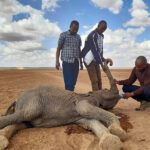
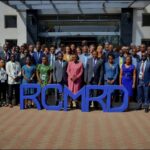
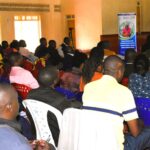
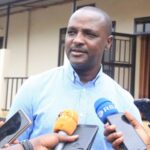



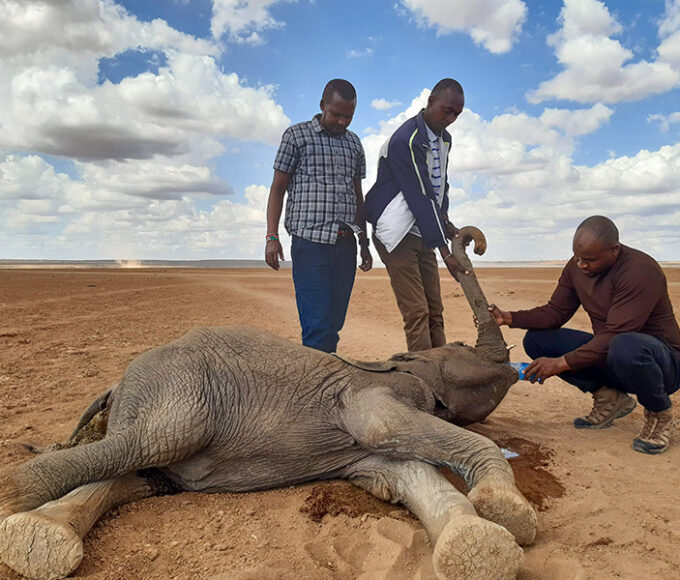
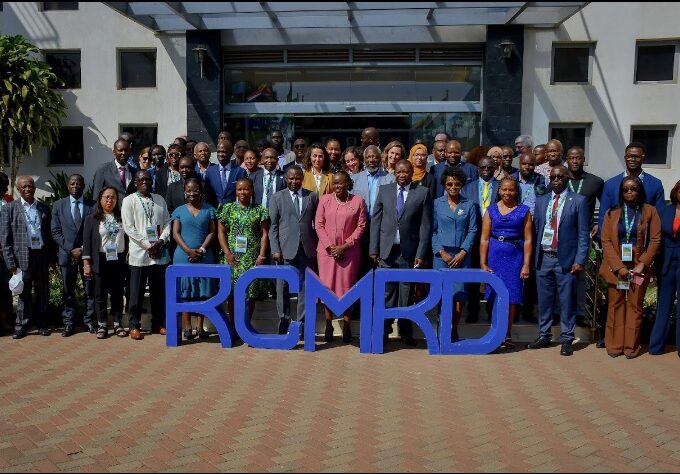
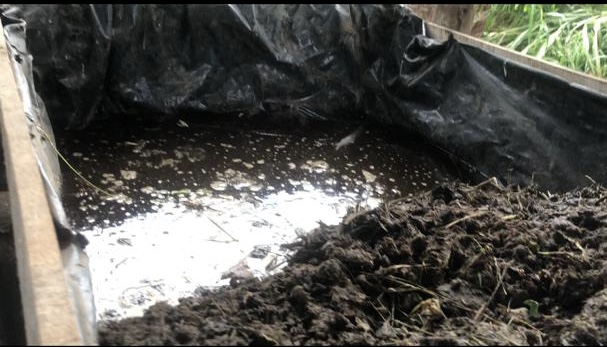
Leave a comment